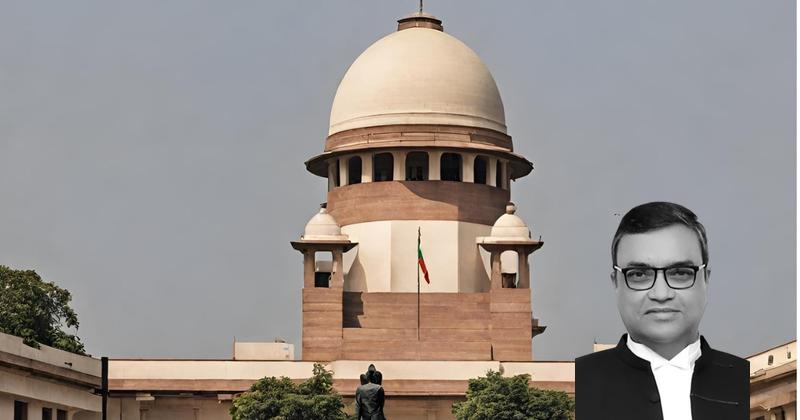2 The applicant, the first respondent and Tata Tele Services Ltd executed a share 2 subscription agreement on 24 February 2006 for the issuance and allotment of shares of TTSL to Siva Industries in accordance with its terms and conditions.
Also Read: https://newslaw.in/case-type/criminal/alleged-misuse-of-official-position-courts-legal-analysis/
Accordingly, Docomo and the first respondent executed a secondary share agreement purchase dated 3 March 2009 in terms of which Docomo acquired 20.740 million equity shares of TTSL from the first respondent. 7
Thereupon, the applicant called upon the first respondent under the Inter se agreement to proportionately pay for and acquire back its shareholdings in TTCL from Docomo. The Supreme Court had exclusive jurisdiction to entertain the arbitration petition since the proposed arbitration between the applicant and the respondents, of whom the second respondent is a foreign party, was an international commercial arbitration in terms of Section 2(1)(f) of the Arbitration Act.
On 21 March 2018, a preliminary meeting was held between the parties and the arbitrator at which the parties agreed to a six months extension, if the arbitral proceedings could not be completed within a period of twelve months commencing from the date the arbitral tribunal entered reference. The applicant sought an extension of the mandate of the arbitral tribunal from 14 August 2019 for a period of six months after the date on which the moratorium imposed under the IBC on 5 July 2019 against the first respondent would stand vacated. As a result of the amendment of Section 29A of the Arbitration and Conciliation Act, 1996, with effect from 30 August 2019, the arbitration proceedings before the sole arbitrator should, in the submission of the applicant, be allowed to automatically continue in view of the amendment of the statute. The provisions of Section 29A as originally inserted and as they stand after the amendment of 2019 are tabulated below: SECTION 29-A PRE AND POST 2019 AMENDMENT Post 2015 Amendment w.e.f.
The second respondent, who is contesting the proceedings as a guarantor, has urged that the amendment of Section 29A by Act 33 of 2019 would not lead to the conclusion that an international commercial arbitration lies outside the purview of the provision. 10 24 The provisions of Section 29A, as originally introduced into the statute, mandated that all awards shall be made within a period of twelve months from the date on which the arbitral tribunal enters upon the reference.
25
After the amendment, Section 29A(1) stipulates that the award “ in matters other than international commercial arbitration” shall be made by the arbitral tribunal within a period of twelve months from the date of the completion of the pleadings under Section 23(4). In a domestic arbitration, Section 29A(1) stipulates a mandatory period of twelve months for the arbitrator to render the arbitral award. In other words, the timeline of twelve months for making the award ( in matters other than international commercial arbitration ), is qualified by the consensual entrustment to the parties under sub-section (3) to extend the period by six months after which the court is empowered in terms of sub-section (4) to extend the period for making the award. However, insofar as an international commercial arbitration is concerned, the statutory regime is clear by the substantive part of sub-section 1 of Section 29A in terms of which the timeline of twelve months for making an arbitral award is not applicable to it. The report of the Committee records: 13 28 The recommendations of the Committee are extracted below: 29
The Committee indicated that international arbitration institutions had been critical of the setting up of timelines for conducting international arbitrations. The intervention of the court in the extension of timelines was criticized by arbitral institutions and eventually led to the formulation of the amended provisions of Section 29A which have expressly kept international commercial arbitrations outside the purview of the mandatory timelines provided in Section 29A. Ltd, a two Judge Bench of this Court while dealing with the construction and applicability of Section 26 of the 2015 Amendment Act in relation to arbitration proceedings and / or legal proceedings in connection with such arbitration proceedings, inter alia, observed in a footnote that Section 29A was procedural in nature.
However, this Court stated that Section 29A created new obligations in respect of a proceeding which had already commenced since it laid down a strict timeline for rendering an arbitral award for the first time in the framework of the Arbitration Act (emphasis supplied). The amendment is remedial in that it carves out international commercial arbitrations from the rigour of the timeline of six months. A decision of a Single Judge of the Delhi High Court dated 21 July 2020 in ONGC Petro Additions Ltd. 36
Also Read: https://newslaw.in/case-type/civil/courts-analysis-on-compliance-with-resolution-plan-conditions/
In Shapoorji Pallonji, the Delhi High Court had held that amended Section 29A(1) of the Arbitration and Conciliation Act, being procedural law, would apply to the pending arbitrations as on the date of the amendment. 37 Consistent with the amended provisions of Section 29A, the sole arbitrator in the present case would be acting within his domain and jurisdiction to decide upon any further extension of time beyond what is originally stipulated at the meeting which was held on 21 March 2018.
Case Title: TATA SONS PVT. LTD. (FORMERLY TATA SONS LTD.) Vs. SIVA INDUSTRIES AND HOLDINGS LTD. (2023 INSC 13)
Case Number: MA-002680 / 2019



